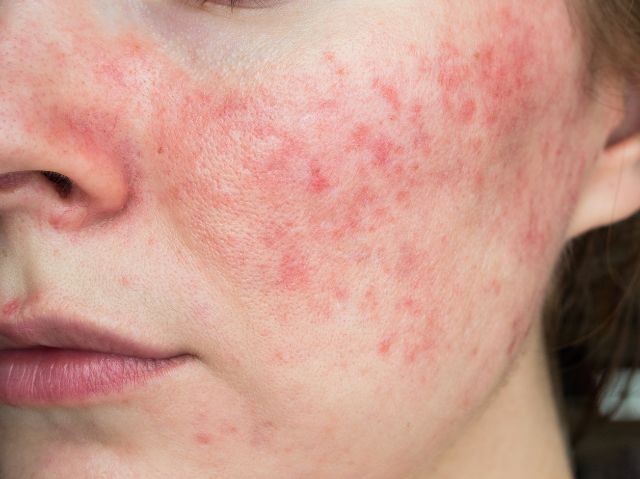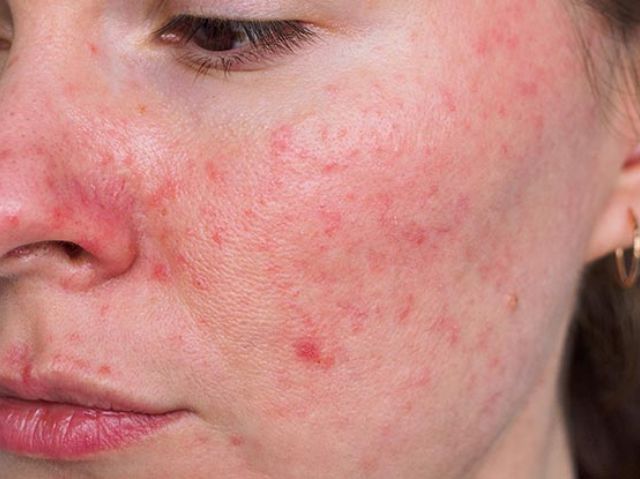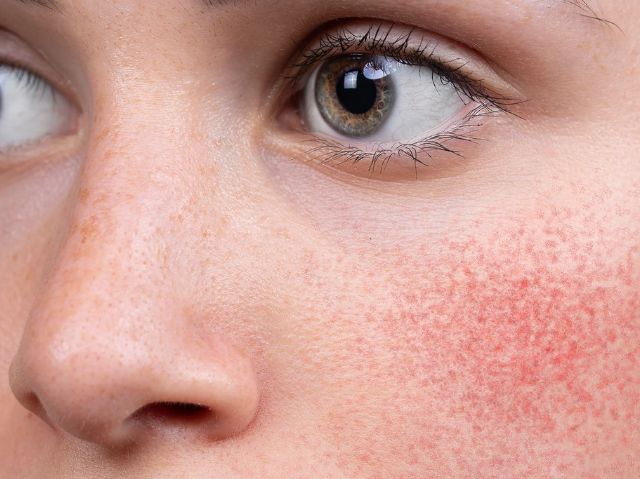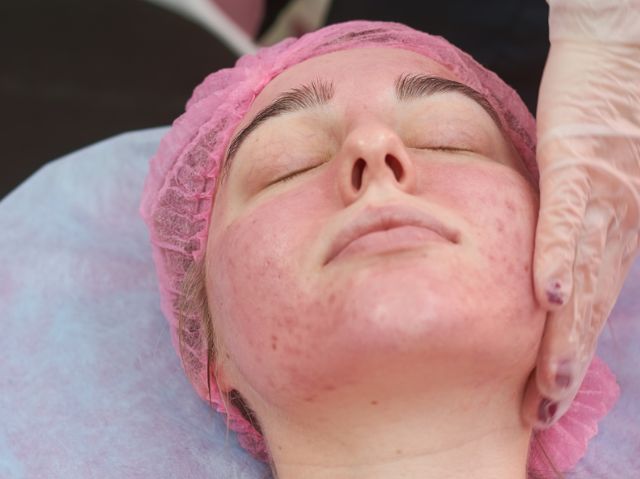Rosacea: Understanding the Redness and How to Manage It
Rosacea is a chronic skin condition that primarily affects the face, causing redness, Prominent blood vessels, and sometimes small, red, pus-filled bumps.


Symptoms of Rosacea
- Persistent facial redness on the central part of the face, particularly the cheeks, nose, forehead, and chin.
- Visible Blood Vessels: Small blood vessels may become visible, creating a web-like pattern on the skin.
- Papules and pustules in the affected area
- Eye Irritation: In some cases, rosacea can affect the eyes, causing redness, dryness, and irritation (ocular rosacea).
- Enlarged Nose: In rare cases, the skin on the nose may thicken, resulting in a bulbous appearance (rhinophyma).
Causes of Rosacea
- Genetics: A family history of rosacea may increase the likelihood of developing the condition.
- Environmental Triggers: Exposure to certain environmental factors such as sunlight, extreme temperatures, wind, and spicy foods can trigger or exacerbate symptoms.
- Demodex Mites: These microscopic mites that live on the skin may play a role in rosacea, with higher numbers found in individuals with the condition.
- Abnormalities in Blood Vessels: may contribute to the persistent redness and flushing associated with rosacea.
- Inflammation: Chronic inflammation of the skin may be a key factor in the development of rosacea.


Treatments for Rosacea
While there is no cure for rosacea, various treatments can help manage symptoms and improve the appearance of the skin. These may include:
- Topical Medications: Creams or gels containing antibiotics, azelaic acid, or other anti-inflammatory agents can be applied to the affected areas.
- Oral Medications: In more severe cases, oral antibiotics or other medications may be prescribed to control inflammation and prevent flare-ups.
- Laser Therapy: Intense Pulsed Light (IPL) or laser therapy can reduce redness and improve the appearance of blood vessels.
- Skincare Routine: Gentle skincare practices, including the use of mild cleansers and moisturizers, can help manage symptoms.
- Avoidance of Triggers: Identifying and avoiding triggers that worsen symptoms, such as certain foods or environmental factors, can be beneficial. Avoid fragrance, denature alcohol in skin products.
Dr. Aparna - Best Dermatologist in Hyderabad
For individuals seeking expert care for rosacea in Hyderabad, Dr. Aparna is renowned for her expertise in dermatology. As a skilled and experienced dermatologist, she offers personalized treatment plans tailored to each patient’s unique needs. Dr. Aparna’s compassionate approach, combined with the latest advancements in dermatological care, ensures comprehensive and effective management of skin conditions like rosacea.
If you suspect you have rosacea or are seeking specialized dermatological care, schedule an appointment with Dr. Aparna for a thorough evaluation and personalized treatment plan to manage your symptoms and improve your skin’s health.


